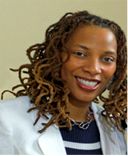Now that Black History Month has come to an end and we go into Women’s History Month, I think the time is appropriate to take another inventory. In February, ask yourself how did you pay tribute to your black ancestors. Did you pour libations to invoke their spirit? Did you pray to ask that their spirit guide you? Did you boast because traffic lights, mass shoe production, refrigeration, lawn mowers, light bulb filaments, open heart surgery, gas masks, the computer and so much more would not be if it weren’t for black people? Have you been chest-out proud because of our black ancestors’ resourcefulness in developing spirituals to pass along secret messages, their bravery to escape to freedom and to help thousands more and their sheer brilliance to be able to organize, strategize, litigate, negotiate and still have room for love?
Truly these survivors had courage to stand in the face of adversity that many of us can’t even imagine, even if we’ve seen newsreels. Abolitionist Frederick Douglass said if we don’t know our history we are destined to repeat it. We must also know our history so we know our racial legacy and not believe the oppressors whose job is to convince us that blacks have not contributed and cannot contribute to any good in the world. But as we pay homage to people have we first given honor to Christ? I’m not talking about the obligatory Grammy shout out or the spiritual introduction of yourself at church (“Giving honor to God, who is the head of my life”). Is God, Jesus Christ our Lord, the motive behind what you do, why you beam, why you brag, why you give honor to whom honor is due? As we seek to remember our history as blacks and women, let’s always pay homage to Jesus Christ first, not just words off our lips, but from a mind that has been focused on Him and a transformed heart that yearns to give Him glory.
Copyright 2009 By Rhonda J. Smith

